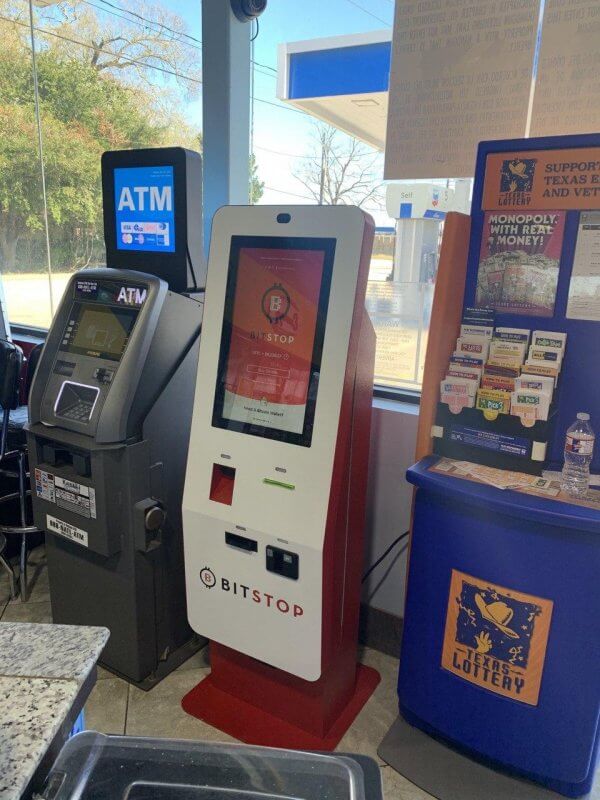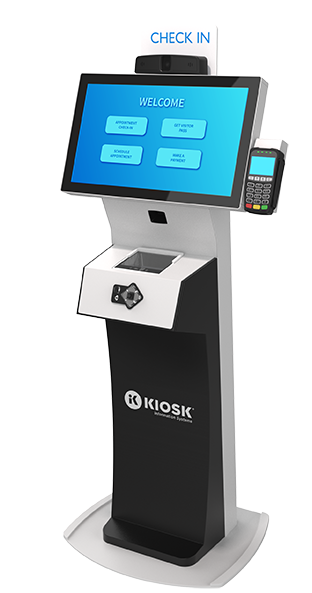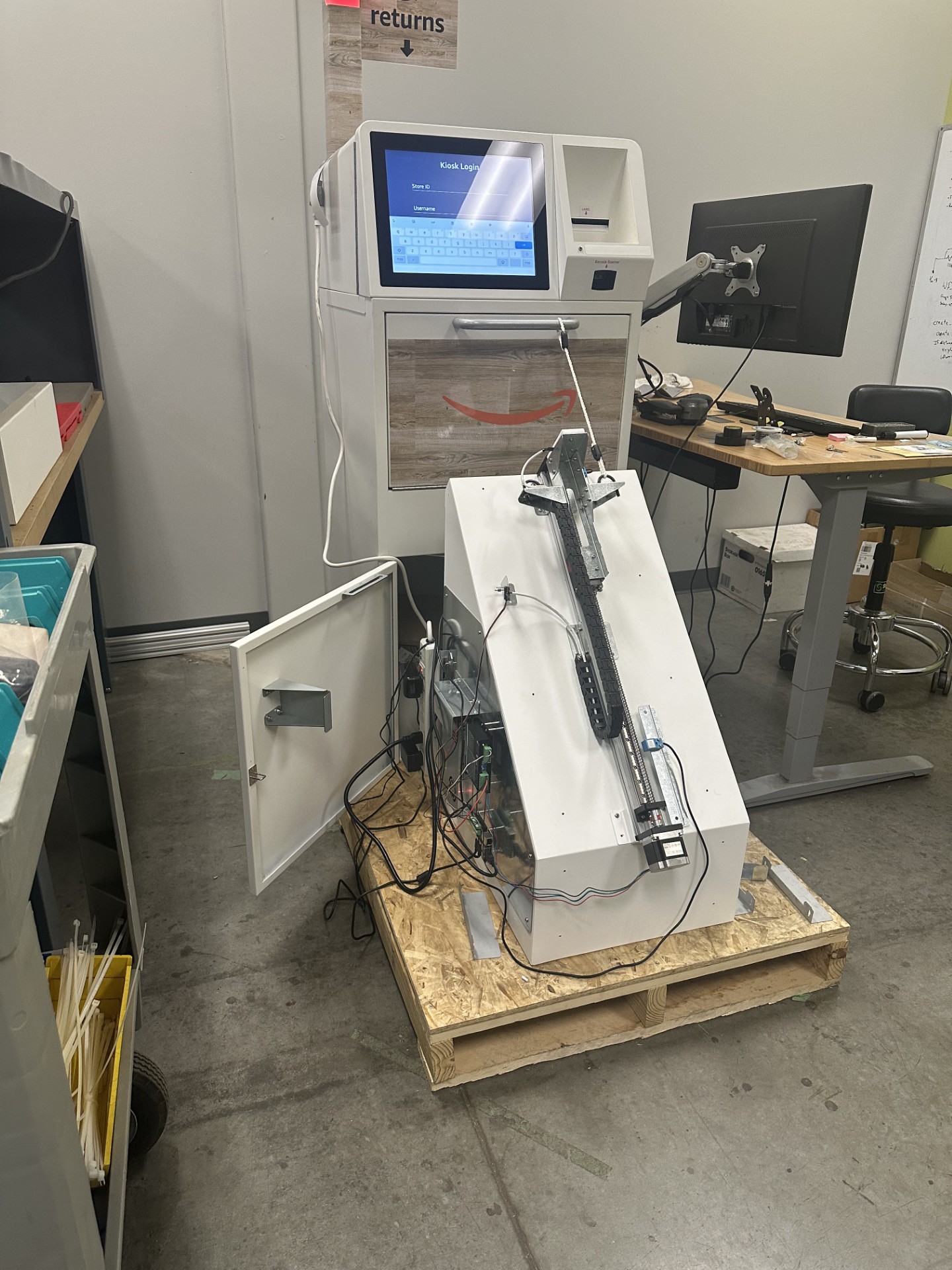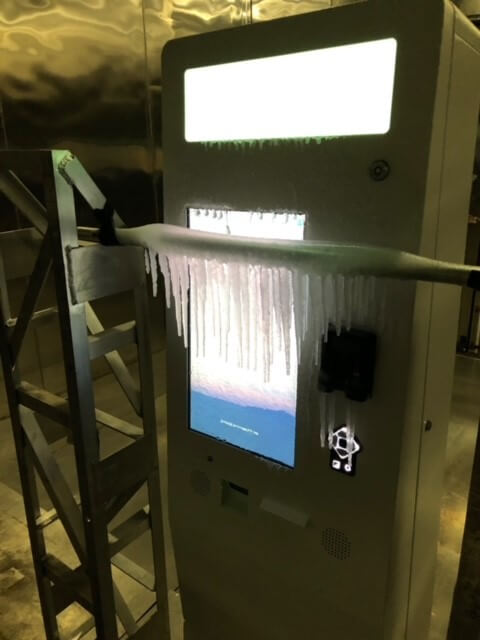Bitcoin ATM Solutions
Bitcoin ATMs allow users to buy and sell cryptocurrency instantly


Bitcoin ATM Solutions
Bitcoin ATMS are self-service kiosks where users can buy Bitcoin and other cryptocurrencies using cash or a debit card. KIOSK machines also support selling Bitcoin in exchange for cash.
New installs are happening daily across the US, and interest is increasing to buy Bitcoin ATMs. Customers are conducting self-serve cryptocurrency transactions in record numbers within convenience stores, gas stations, airports, and grocery stores. KIOSK partners with premier software providers for a complete solution:
- Facilitates customers who want to buy bitcoin with cash or redeem bitcoin for cash
- Draws increased foot traffic to retail locations and provides a steady revenue share stream from Operators
With the surge in interest and adoption of bitcoin, the demand for purpose-driven bitcoin ATM machines has also spiked. Traditionally built overseas, Operators are now looking for bitcoin ATMs for sale with modernized equipment sourced in the US to improve lead times and deploy more efficiently. KIOSK has created standard models for purchase only, or bitcoin purchase and cash redemption.
Industry feedback is that KIOSK has provided an ATM series that combines the right aesthetics, price, lead time, and ease of integration. Further, KIOSK is offering lease to own financing options to amortize the investment over three to five years.
Attributes of Bitcoin ATM Kiosks

Value Drivers
Although cryptocurrency can be bought and sold via an online exchange, it can take three days or more for transactions to settle. In the case of a sale, that means you may not have access to your funds as needed. A Bitcoin ATM allows for instant settlement. In the case of a purchase, transactions are credited to your wallet immediately. In the case of a sale, you’ll have cash in hand immediately.
For cryptocurrency users, Bitcoin ATMs offer:
- Easy purchases
- Instant conversion to cash
- Increased user satisfaction

Product Features
KIOSK has developed a set of standard bitcoin ATM machines for sale, with over 1000 units deployed to date. Operators and ISVs utilize KIOSK’s Hardware Integration Module to facilitate seamless software integration and secure operation. Internal components are fully secured with hardened exterior door locks. The cash vault is contained within a separate locked vault, isolating cash components from the rest of the serviceable transaction devices.
The Bitcoin ATM Series includes the following transaction components:
- 21.5” PCAP touch display
- QR code scanner for bitcoin wallet transfers
- Card reader for credit/debit to bitcoin purchases
- Bill acceptor for cash to bitcoin purchases
- Bill dispenser for bitcoin to cash conversion
- Printer for transaction receipts
- Navigation pad to ensure ADA accessibility
Let’s get you started with a Bitcoin ATM solution quote.

Application Integration Resources
To provide developers quick integration of software with hardware and reduced time to market, KIOSK offers a licensable Hardware Integration API library with an easy-to-use, well-defined abstraction layer development asset. This proprietary and licensable tool is referred to as the KNECT Hardware Integration Module (HIM). The HIM license accelerates interoperability and application development via a simplified higher-level abstraction layer.
Application integration resources enable businesses with:
- Barcode Scanners
- Credit Card Readers
- Thermal/Laser Printers
- Cash Acceptors
- Cash/Coin Dispensers
- Proximity Sensors
- Document/ID Scanners
- Ticketing Printers
Leverage Kiosk’s application integration solutions and gain access to a growing library of APIs –supporting over 40 kiosk components. Eliminate the need to manage and maintain individual component drivers and SDKs, so you can streamline development efforts and time to market. Further simplify development with a comprehensive hardware integration component test suite with easy-to-understand code examples for ultimate efficiency. Plus, you can access technical API documentation that provides turnkey code, methods, and best practices used to gain component functionality insights.

Market Applications
Solutions for Any Industry
No matter the market, Kiosk applications enables digital transformation through automation platforms that are easy to use, adaptable and supported by end-to-end Managed Services using IoT real-time monitoring. Whether you need a solution for self check-in, automated returns, video conferencing or ticketing, KIOSK has a solution that transforms the customer experience.





